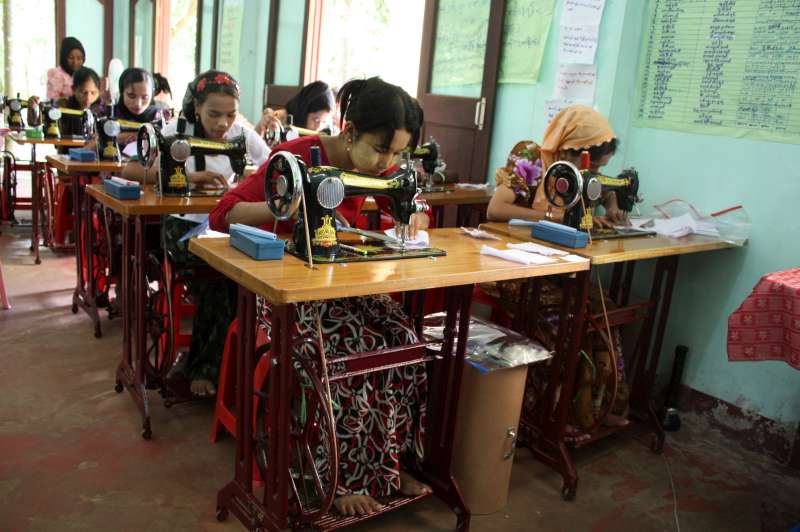Women's training project in northern Myanmar generates income and goodwill
YANGON, Myanmar, December 29 (UNHCR) – In a place where jobs are scarce and social mores discourage women from
working outside the home the opportunity to learn a new skill and
contribute to the family income received an enthusiastic response from
the female residents Mee-chaung-zay, a remote village in Myanmar's
northern Rakine state.
Thirty-seven year old Azeevahar, a Muslim woman in a community that also includes Hindus, Rakine and Bamar residents, was one of the first
to enroll in the advanced sewing course, which is funded by UNHCR, and
she is hoping she will be able to pass on her good fortune to others.
"There are many girls and young women in my village who are eager to learn sewing because they know it could bring in a good income," she said. "I want to be able to help them as others have helped me."
The training is offered by Community and Family services, an NGO which is supported by the UN refugee agency. It aims to give new skills
to women who have already been working as sewing trainers in their
villages.
About 750,000 Muslims live in this area with the remainder of the population composed of the ethnic Rakhine people, and small numbers of
Dynets, Hindus and other groups. The culture, traditions and language
of Muslims are distinct from the rest of the population of Myanmar and
other ethnic groups living in northern Rakhine State. UNHCR began
working in the area in 1994 to facilitate the return of refugees who
had been living in neighbouring Bangladesh.
The area's remoteness, scarce resources and poor transportation links mean there are few opportunities for residents to attend school
or find jobs. Fishing and farming are the main sources of income and
these, too, are seasonal.
Azeevahar's husband works as a farm laborer in the village. When there is no work on the farm, Azeevahar's income from sewing and from
sewing training helps support the family. She began teaching sewing
several years ago after attending a UNHCR-funded training program. This
time, the advanced training will enable her to upgrade her skills.
"I'm so glad to get chance to learn new things and improve my skills," she said. She recently made the difficult journey to UNHCR's
field headquarters in Maungdaw from her village so she could attend the
course. In addition to learning new skills, women attending the 13-day
course also receive instruction in health and nutrition, basic
bookkeeping and sewing-machine maintenance.
The courses also aim to foster co-existence between the region's Muslim and Rakhine communities. Twenty-five women from different
religions and ethnic groups drawn from villages across the state take
part. Working together the women have a chance to make new
acquaintances and improve their understanding of each others' culture.
UNHCR-sponsored courses such as the sewing initiative are designed to promote the rights and well-being of people in the region while encouraging co-existence between different ethnic communities.
By Kyaw Soe Lynn in Yangon, Myanmar
© 2026 Created by Zomi Community Network.
Powered by
![]()

You need to be a member of Zomi Community Network - Your Network to add comments!
Join Zomi Community Network - Your Network